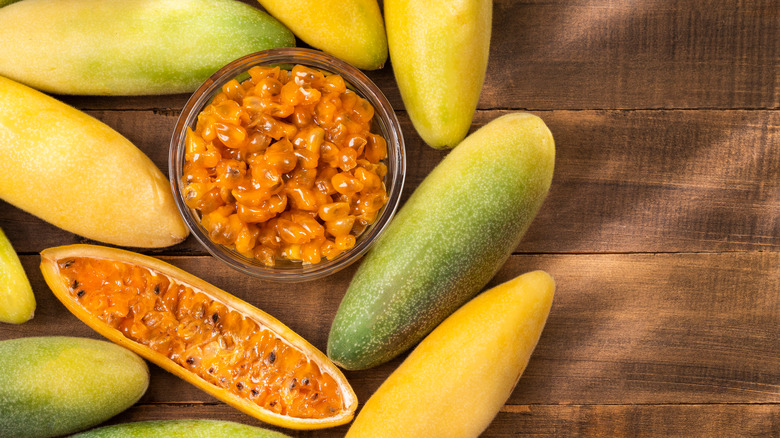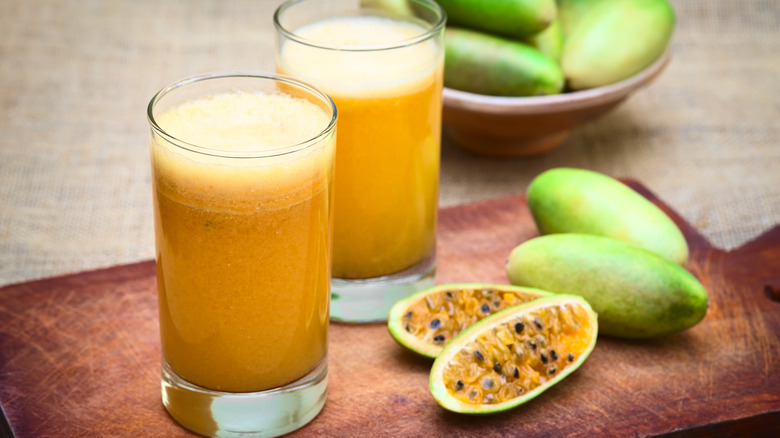Why The Banana Passionfruit Is Illegal In Some Places
The banana passionfruit is not a fruit you will easily stumble upon in the produce aisle of your local grocery store. As Taste Atlas notes, the banana passionfruit grows primarily in the Andes, specifically in Bolivia, Peru, Colombia, Venezuela, and Ecuador. It gets its name from its shape, which is sort of banana-like. However, once you cut it apart, it emits an aroma that more closely resembles an orange.
Getting the fruit outside of this area is difficult. Specialty Produce devotes an entire profile to the fruit but does not list a previous time it has ever sold this produce. Its reported taste is sweet and slightly acidic in a manner reminiscent of a peach. It also delivers the general benefits of fruit like fiber, vitamins A and C, and the much-gushed over antioxidants.
The phantom taste of a delicious yet unavailable drink may strike if you read Fine Dining Lovers' recipe for sorbete de curuba, a Colombian drink that uses the curuba, which is another name for the banana passionfruit. In addition to the fruit, it uses milk, fresh cream, condensed milk, and some ice. You can add sugar to sweeten it or incorporate non-dairy alternatives. You could, that is, if you can legally get your hands on the fruit.
The banana passionfruit is an invasive species
You might guess from its clustered origin that the banana passionfruit requires a specific climate. And you would be right. Fine Dining Lovers explains that outside of the Andes, you can only find the banana passionfruit growing rampantly in Australia, Hawaii, and New Zealand. In these countries, however, the banana passionfruit is treated as an invasive species. Fine Dining Lovers' description of the fruit may remind you more of a spreading weed that smothers other vegetation. Gastro Obscura goes further and flat out states that the plants are illegal to cultivate in New Zealand and Hawaii.
Strictly speaking, the regional government of the Bay of Plenty, which is a bit east of Auckland, considers the banana passionfruit a sustained control pest. This means that individuals can cultivate it, but if landowners receive written instructions to remove it, the plant must be removed. However, as Passionfruit New Zealand explains, people can't legally propagate the banana passionfruit as it is considered a "noxious weed." Hawaii's Invasive Species Council has also regulated it as a noxious weed but has yet to place it under a prevention and control category. In short, unless to take a trip to South America, you are unlikely to enjoy the banana passionfruit.

